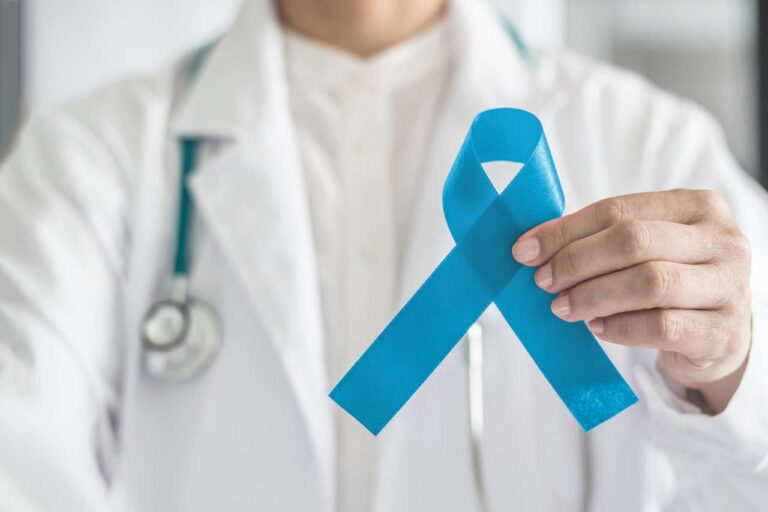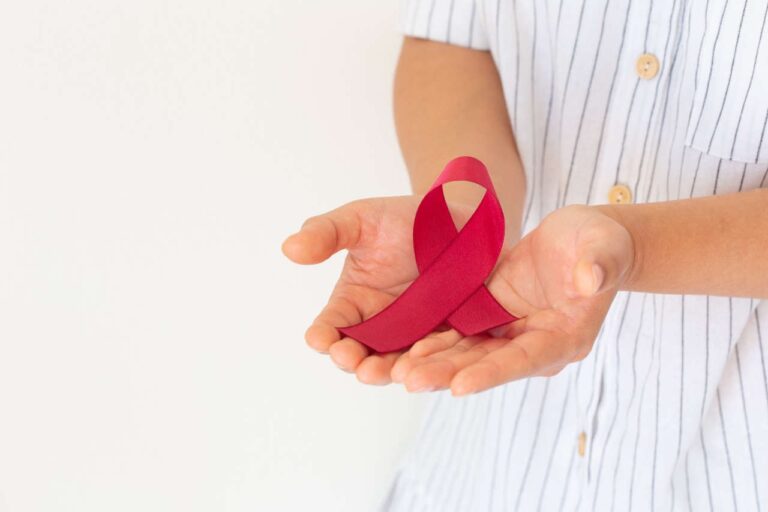
The most prevalent form of non-Hodgkin’s lymphoma (NHL) in both the United States and worldwide is known as diffuse large B-cell lymphoma (DLBCL). Diffuse large B-Cell lymphoma (DLBCL) is a type of cancer that affects the white blood cells in the body known as B-Cell lymphocytes. Normally, these lymphocytes help fight off infections. However, with diffuse large B-cell lymphoma (DLBCL), the lymphocyte grows faster and larger than normal, allowing the lymphocyte to function abnormally or not function at all. These lymphocytes also accumulate in various locations throughout the body, including the lymph nodes, as a result of their high rate of proliferation.
Speak to a Specialist
About Copay AssistanceIn this article, we will review Polivy, one of the medications that have been developed and approved for the treatment of DLBCL.
What Is Polivy?
Polivy (generic name: polatuzumab vedotoin-piiq) is a drug created and approved to treat diffuse large B-Cell Lymphoma in adult patients. DLBCL affects the white blood cells in the body and reduces the ability of the body’s immune system to fight off infections.
Polivy can only be used to treat DLBCL after two other medications and therapy options have failed to improve the condition. This means you can only treat DLBCL with Polivy if the condition has relapsed or is resistant to other treatment options. Two other cancer treatments known as rituximab and bendamustine are used in combination with Polivy in treating DLBCL.
How Polivy Works
The active ingredient in Polivy is known as polatuzumab vedotin-piiq. This agent is an antibody-drug conjugate, which attaches to the antibody known as the CD76b protein. The attachment of Polivy to the CD76b protein makes it easy for the active ingredient to target B-cells in the body, including malignant cells.
The drug locates the desired B-cells and then releases its active ingredient, destroying the white blood B-cells. The drug also targets and destroys cancerous B-cell lymphocytes. After the initial dose, the medication begins to take effect. However, the doctor may need to run some tests in order to ensure the medication’s efficacy.
Approval and Effectiveness
In 2019, the Food and Drug Administration (FDA) authorized Polivy for the treatment of DLBCL. However, the medication received accelerated approval from the FDA, meaning that the drug was approved and made available for the public to use before the conclusion of its clinical trials.
This type of approval is usually provided for medications that are used to treat rare conditions such as DLBCL because these conditions do not have many treatment options. The decision on whether or not to give Polivy full approval will come after the conclusion of the clinical trials.
However, the studies and clinical trials carried out so far on the effectiveness of the drug have been positive. As provided by the National Comprehensive Cancer Network, the treatment guidelines for DLBCL includes Polivy as a recommended treatment option.
How Is Polivy Administered?
Polivy is administered through IV infusions, which are injections made into the vein over a period of time. This means that you will need to be around healthcare professionals in a hospital or infusion center to get your dose of Polivy.
The first Polivy infusion dose usually lasts about 90 minutes. All the infusion doses after that last for about 30 minutes each. Ideally, a dose of Polivy is given every 21 days. There are usually six cycles of treatment.
Dosage

The appropriate dose of Polivy used to treat DLBCL depends on many factors. The main factors are weight and side effects that may develop. Your doctor will consider some of these factors in determining the right Polivy dosage for you.
The medication usually comes as a liquid in a vial that is mixed with sterile water.
Polivy comes in two possible drug strengths: 30 mg and 140 mg per vial. The dosage to treat DLBCL with Polivy is 1.8 mg per kg. Thus, your weight will determine the right dosage for you. For instance, a person weighing 77 kg would need one 140 mg vial for one infusion.
If you miss an infusion appointment, call the healthcare facility where you receive the infusions and reschedule as soon as possible. You should also inform the doctor about the missed appointment, which may affect your treatment schedule.
Get Polivy Copay Assistance
Financial AssistanceSide Effects
The side effects associated with Polivy usually range from mild to serious. Some of the side effects you may experience include:
Mild Side Effects
- Dizziness
- Fever
- Fatigue
- Mild allergic reaction
- Diarrhea
- Weight loss
- Low levels of potassium, albumin, and calcium in the blood
- Reduced appetite
- Upper respiratory infections like the common cold
- Vomiting
Possible Adverse Side Effects
These adverse reactions are not common and rarely occur. However, if you experience any of them, you should immediately reach out to your healthcare facility. These side effects include:
- Peripheral neuropathy, which is a form of nerve damage characterized by tingling, numbness, muscle weakness, and twitching
- Tumor lysis syndrome, which occurs when cancerous cells break down and release certain substances into your bloodstream
- Serious infections like pneumonia, leading to sepsis
- Infusion reactions that occur about 24 hours after an infusion
- Progressive multifocal leukoencephalopathy
- Increased levels of liver enzymes
- Low level of platelets
- Anemia
- Severe allergic reaction
- Low levels of specific white blood cells
Note that the FDA is still tracking some of the side effects that come with the use of Polivy. You can also report side effects that are not listed through MedWatch or you can call 1-800-DA-1088.
Cost
The cost of Polivy is about $3,530 for a 30 mg vial. The final price you pay depends on many factors, such as your insurance, location, and the pharmacy you use.













